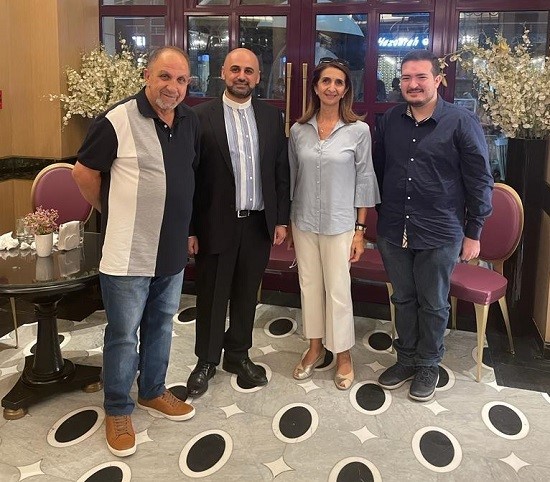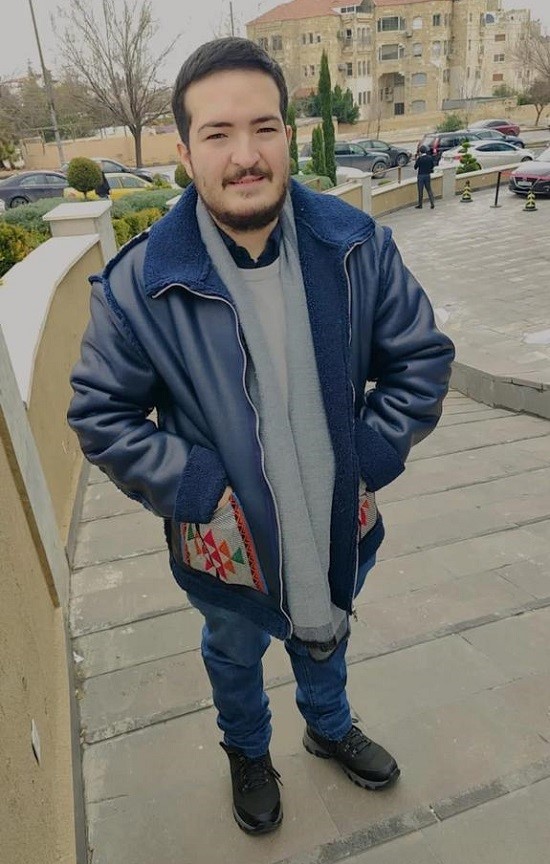AMMAN — Every
three seconds someone in the world develops dementia, according to
Alzheimer’s Disease International. In the past 20 years, deaths from Alzheimer’s have
increased by 145 percent, with the highest increase in Africa and the Middle
East. Cases are expected to triple to over 150 million in 2050 as a result of
population growth and aging.
اضافة اعلان
Whilst the
terms dementia and Alzheimer’s are used interchangeably, it should be noted
that dementia is a general term for memory loss symptoms rather than the disease
itself, and Alzheimer’s, a type of dementia, is the progressive brain disease
that impacts nerve cells in parts of the brain involved in thinking, learning
and memory, eventually leading to immobilization, difficulty swallowing and
fatality.
“We are
facing many challenges here in Jordan pertaining to funding for Alzheimer’s,
support for patients and their caregivers, as well as educating society about
the disease and overcoming stigma around Alzheimer’s,” said Hamza Nouri, founder
and president of
Al Oun for Alzheimer’s Patient Care Association in Jordan.
Nouri founded
the association in 2020, and at 24, he is the youngest person in the world to
run an Alzheimer’s association.
“I was
inspired by my aunt who was diagnosed with frontotemporal dementia at a very
young age,” Nouri added.
As much as
support is a dire need for both patients and their caregivers, also
education is needed to raise awareness and break taboos.
“Sadly, caregivers
or family members are ashamed of either admitting or publicizing that the
disease has hit a beloved one due to denial, myths, lack of information, community
viewpoint on patients and misconceptions about Alzheimer’s,” said Leen Al-Madanat,
secretary of Al Oun for Alzheimer’s Patient Care Association.
 An undated photo of the founders and board
members of Al Oun for Alzheimer’s Patient Care Association. (Photo: Handout from Al Oun for Alzheimer’s Patient Care Association)
An undated photo of the founders and board
members of Al Oun for Alzheimer’s Patient Care Association. (Photo: Handout from Al Oun for Alzheimer’s Patient Care Association)
“Myths such
as dementia only hits old-aged people and that every elderly will get it are
widely spread. Other common ones include smokers get dementia, the disease runs
in the family and the patient is unaware of his/her surroundings,” added
Madanat.
It should be
known that Alzheimer’s is not a normal part of aging, even though the mind may
become less sharp over time. Sometimes not being able to remember the name of
an acquaintance can be a part of normal aging. Not remembering the name of a
family member, however, is a symptom of Alzheimer’s. Communication may be lost
at some point, but this patient is still aware and can probably see more deeply
into a piece of art, and point out things that others miss.
Whilst many
are diagnosed with this disease in the 80s, 5–6 percent are diagnosed before
the age of 65. According to the Alzheimer’s Foundation of America, the risk of
getting Alzheimer’s disease doubles every five years after 65.
Raising
awareness about Alzheimer’s and empathizing with patients is the first step.
People need not whisper about the disease nor avoid talking about it in order for
support to happen. Shame and blame should be ended to rid the patient of
humiliation, distress and dishonor. It is no fault of any caregiver either. It
is a disease.
 (Photo: Handout from Al Oun for Alzheimer’s Patient Care Association)
(Photo: Handout from Al Oun for Alzheimer’s Patient Care Association)
The pandemic
has its toll on the Alzheimer’s community, negatively impacted the progress, and
staggered the support to patients.
“Many
doctors and nurses were unable to reach their patients, and mental support was hard
to give for both patients and caregivers,” said Nouri. He ultimately aims to
set up an Alzheimer’s day care center in Amman, which will be the first. The
association also hosts a WhatsApp group called “Loved Ones with Dementia”,
which offers mental support, resources and advice to caregivers, who are true
heroes.
“If
you have had a family member that has been impacted by this disease — or if you
yourself are experiencing it — then know that you are not alone and that we are
there to support you at different stages of the disease and working hard to
educate the community. Stay strong and together we can battle Alzheimer’s and
save the patients’ right to live honourably,” said Nouri.
Read more Health



